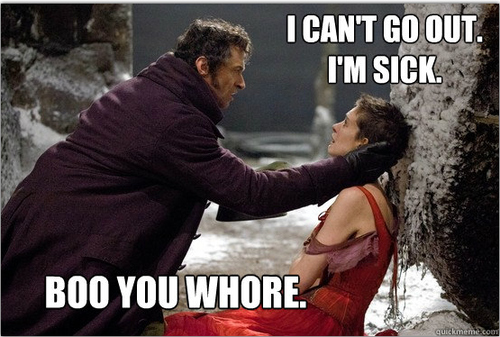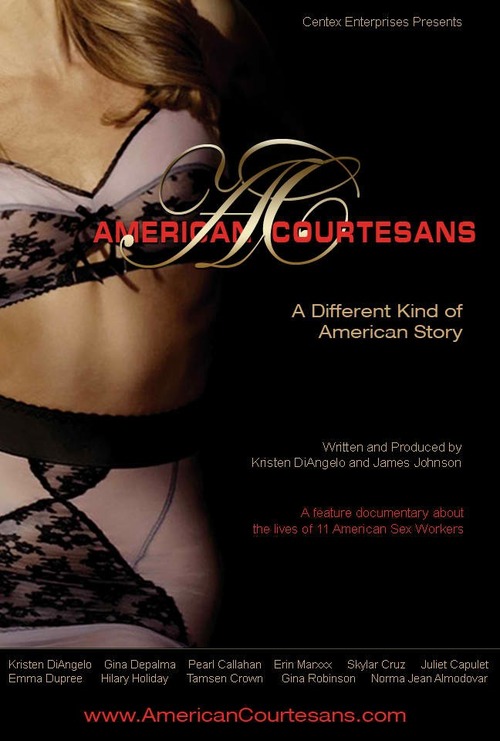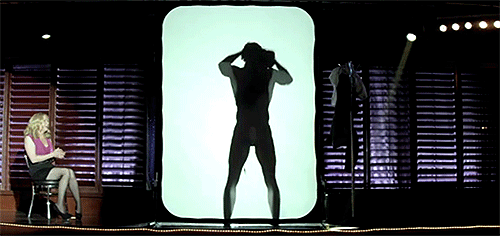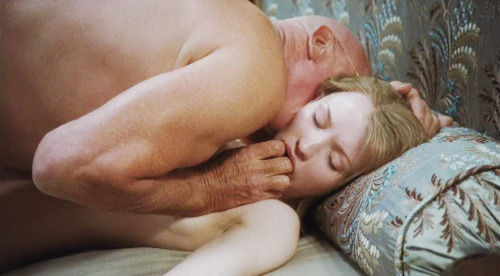Misérable Politics: Why Anne Hathaway Should Go-Away

In last year’s Les Miserables, a movie with a lot of famous people in it that will probably win some Oscars, Anne Hathaway plays Fantine, a single mother struggling to provide for her child. Fantine turns to prostitution in a moment of ultimate desperation, having already sold her hair and teeth—I know I’m not the only hooker whose first response to that was “Wrong order, girl”, but whatever—and she and the audience feel very sad. Then she’s saved, and we feel happy, but then she dies of tuberculosis, and we are sad again. At least she’s not a hooker now though. Phew!
No one is more concerned about Hathaway’s Fantine, however, than Hathaway herself, as evidenced by her various comments during the lead-up to the film’s release. One of the most circulated quotes has Hathaway outlining her research “into the lives of sex slaves, which are just unspeakably harrowing,” and her attempts to “honor” the experiences of women who are “forced to sell sex”:
I came to the realization that I had been thinking about Fantine as someone who lived in the past, but she doesn’t. She’s living in New York City right now, probably less than a block away. This injustice exists in our world. So every day that I was her, I just thought ‘This isn’t an invention. This isn’t me acting. This is me honoring that this pain lives in this world.’ I hope that in all our lifetimes, we see it end.”



 There is a peculiar claustrophobic glory to working in a strip club. The walls hug. The beat of the music holds you in its grasp that is by turns steely and auto-tuned, fuzzy with distortion, jangly with teenage optimism, and tired with oversaturation. The air breathes recycled. The lights flash with epileptic precision. The girls rotate on stage, so many painted ponies. The voice of the DJ booms intermittent like a hawking God, reminding you to tip your bartenders and waitresses. It’s a closed loop, and yet the strip club’s very Möbius nature gives the whole experience a kind of comfort. It may be claustrophobic, but it may also be the only kind of closeness some strip club denizens get.
There is a peculiar claustrophobic glory to working in a strip club. The walls hug. The beat of the music holds you in its grasp that is by turns steely and auto-tuned, fuzzy with distortion, jangly with teenage optimism, and tired with oversaturation. The air breathes recycled. The lights flash with epileptic precision. The girls rotate on stage, so many painted ponies. The voice of the DJ booms intermittent like a hawking God, reminding you to tip your bartenders and waitresses. It’s a closed loop, and yet the strip club’s very Möbius nature gives the whole experience a kind of comfort. It may be claustrophobic, but it may also be the only kind of closeness some strip club denizens get.